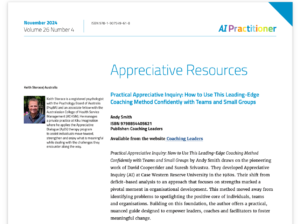We’re All Gamblers | Ewakubin.com

[ad_1]
“My parents open their mouths only to yell at each other. And trust me, it is not even a real conversation, they always keep talking about same things! It is like a theatre! I can write a screenplay. They never come to any positive conclusion! Can you imagine that?” (Miriam, 15 years old)
Oh yes, I can. I can even name it. This is a classic example of GAMES. Eric Berne (1964) defined them as a “series of complementary ulterior transactions progressing to well-defined, predictable dramatic outcome”.
Bit too fast? Ok, ok. Transaction is basically any communication between two people. There are three basic types of transactions: complementary (you somehow expect what is going to happen next: – Hi Miriam! – Hi Ewa!), cross (when you feel bit shocked when hearing the answer: – Do you want an apple? – Oh! Even you think that I am fat!?) and ulterior (people say something that on surface means one thing but you can feel the real meaning underneath: – Oh! I noticed that you finally got rid of moths in your drawers, how nice!).
We all communicate because we need somebody to notice our existence and we require to feel that on regular basis. For those reasons, sometimes even negative communication is better than none (Miriam’s parents quarrel because they do not have anything nice to say, but they still need an interaction). At the end, how we communicate depends mainly on our life positions – the answer to a question if we consider ourselves and people around us to be OK or not OK.
We already understand that Miriam’s parents are playing games. What is so dangerous about this special way of communication? First, games are unfair, dishonest and damaging by definition, they rarely bring anything good to our life. Second: most of us are compulsive gamblers, we feel it but didn’t have a name for it so far.
After we sorted out the basics, we can focus on discovering which of our own conversations could be named games. Let’s start with checking how many of our recent discussions meet the following patterns:
– Repetitiveness – if you keep discussing the same problem (for example: toilet seat, homework, the way you park your car, socks) again and again without any result – it was probably just the game not a real problem solving conversation.
– Automation – your experienced opponent usually knows exactly which button to press to make you jump out of your skin, even if you promised to never ever step back into the same river.
– Sadness and off balance feeling – after the conversation you feel that your partner and you failed, again.
– Underneath – you somehow know that there are more meanings under the surface, and that you’ve just hurt somebody’s feelings and your feelings were hurt.
Bit upsetting, isn’t it? We do play games all the time. Is there anything we can do in this situation? If you are not afraid of challenges, the answer is yes! We can limit the number of games we get involved in and with time stop playing them. For those who need a shortcut I suggest to contact me immediately (ewa@ewakubin.com, (+44) 7484297277), so we can discuss this even today. For the rest of you I suggest to read my articles during next weeks, because I am going to follow up on this fascinating subject.
And Miriam? Miriam is a very intelligent, young lady. We had a nice chat that was refreshing for both of us. She understood really fast how games work and that there is not much she can do when her parents start their match. What she can and should do is just to step back, use her time on something more pleasant and kindly suggest her parents to start to behave more like adults – which is one of the key skills on the way to stop gambling.
Btw being an adult as a full time job is going to be a topic of one of our next articles. Stay tuned 🙂
——
Biography:
E. Berne, Games People Play, 1964, Penguin Random House UK., 161p,;
T.A. Harris I’m OK – You’re OK, 1967, Harpers Collins Publishers, 286p
[ad_2]




